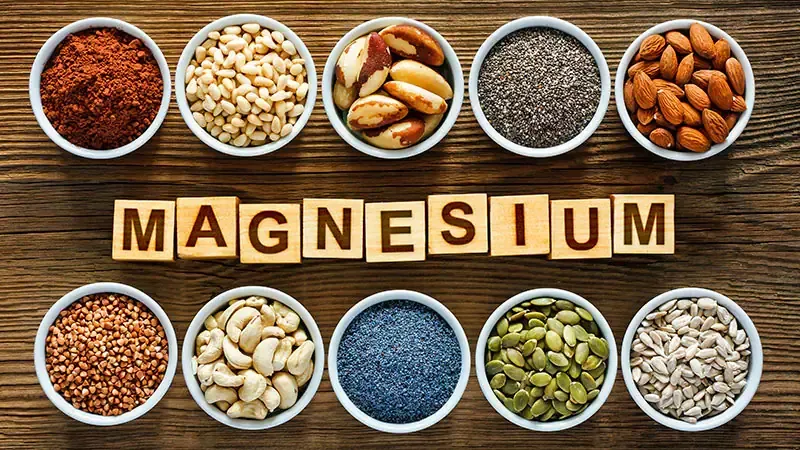The Power of Magnesium
Magnesium is possibly one of the most important nutrients for overall health, yet most people are deficent. It is an essential mineral for multiple body functions. It plays a vital role to over 700 enzymatic reactions, is required to synthesize at the DNA level, and is vital to bone and cellular health. The deficency most American’s have is a strong factor to many health concerns including cardiovascular disease, dementia, and osteoporosis.

This power mineral is essential for many reasons. It is essential for energy production, glucose regulation, the development of bone, muscle contraction, regulating normal heart rhythm, nerve function, and the production of glutathione, one of the most important antioxidants in the body. It also works with other nutrients to accomplish other essential bodily functions such as the activation of Vitamin D.

Let’s take a brief look at the many areas of health that magnesium is necessary for:
- Cardiovascular Health - Magnesium is so essential that low levels can lead to the development of arrhythmia and heart failure. It keeps blood vessels clear and the heart strong. Those with cardiovascular concerns can have a 34% lower risk of death simply by getting appropriate amounts of magnesium.
- Metabolic Health - This ties into cardiovasular health because magnesium is essential to balancing blood pressure and blood sugar. Your body can’t convert carbohydrates or fats into energy without magnesium.
- Migraine and Headaches - It’s long been understood that magnesium can reduce the intensity and frequency of headaches and migraines. Studies have gone as far as saying that half of all migraine sufferers are magnesium deficient.
- Stress - I’ve written a lot about the impacts of stress on the body, but magnesium is an essential nutrient to your body handling stress and helping the body relax. Stress actually depletes magnesium, yet magnesium helps relieve stress. If you are stressed out, it would be important to ensure your magnesium levels are balanced.
- Digestion - Magnesium is a soother to the digestive tract and abdomen. It can help with chronic constipation, gas, and bloating.
Do you believe you are magnesium deficient? Here are just a few symptoms that can point to magnesium deficency:
- Weakness
- Fatigue
- Nausea
- Headaches
- Loss of appetite
- Cravings for stimulants like coffee
- Vomiting
- Abnormal heart rhythm
- Muscle cramps
- Numbness or tingling
- And many more
If you think you need more magnesium, reach out to me. Your body is craving balance, so the best way to know is by testing and creating a proper health plan so your body gets the magnesium it needs AND can absorb it. Check out this high-quality magnesium supplement or schedule a Health Discovery Session to talk with me further.
Sources:
https://chriskresser.com/magnesium-an-essential-nutrient-that-most-people-dont-get-enough-of/
Don't Miss Out On More!

Heidi Toy FNTP
I help people all over the world heal by identifying and treating the root cause of their body imbalances. Through diet and nutrition, I guide them towards wholeness and balanced lives.
Heidi Toy Functional Medicine Blog














































































































